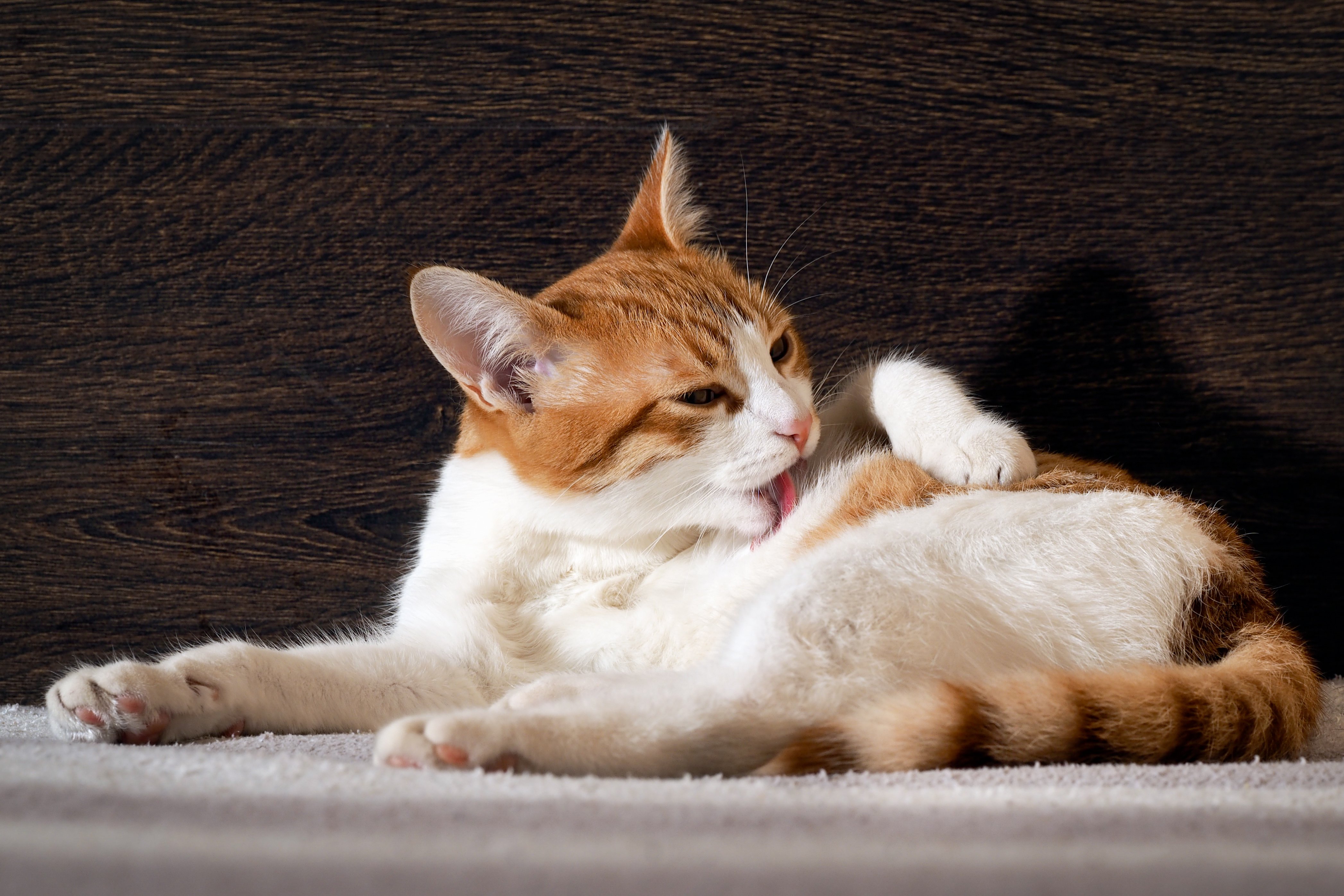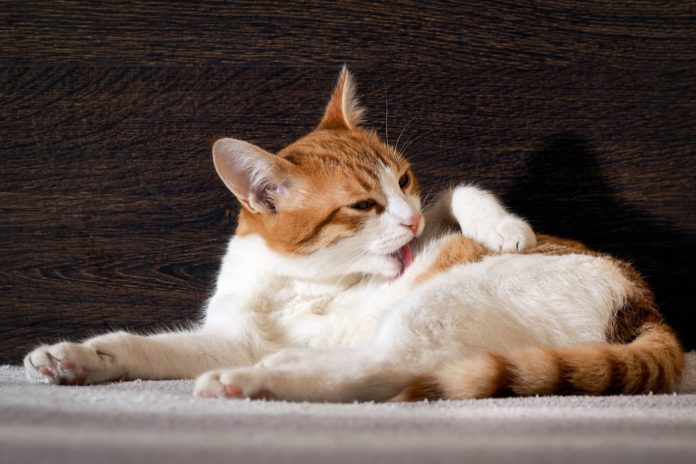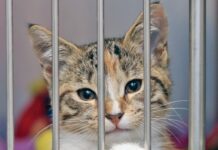
kozorog | AdobeStock
Q. My cat likes to lick himself on both shoulder blades, shortening the hair to the skin in some places. The areas are 2 by 5 inches. He used to have several smaller spots that he’d licked until the hair was totally gone and the skin was getting raw from all of the licking. Now it’s just two bigger patches on the shoulders, but not down to the bare skin all of the time.
I’d sure like to know the cause, and the treatment if any. I’d love to help him if I can. He’s a great cat.
A. Thanks for getting in touch, and I can certainly understand your concern about this issue. There are a number of reasons we cats may lick this way, so let me discuss a few possibilities, in hopes that this may shed some light on potential causes and perhaps send you in the right direction toward a resolution.
The first thing to consider is that your kitty is doing this for a medical/physiological reason. By that, I mean that he is either itchy or experiencing discomfort in these areas. It is important to work with your veterinarian to rule out things that can cause him to itch (i.e. flea infestation, allergies) and/or to be painful in these regions (orthopedic/muscular problems).
If you can identify potential causes of itchiness and/or pain, then addressing these problems is certainly the first step. If not, the possibility of a behavioral cause should be considered. We cats do groom inappropriately in response to stress, a calming behavior that veterinarians refer to as displacement (we cats simply call it stress!).
Conflict among cats and other pets within a household (over food, territory, litter boxes, owner attention) or stress caused by owners (failure to spend adequate time focused on the cat, punishment, loud vocalizations, irregular feeding/sleeping schedules) can induce stress in a cat and, for reasons that are unclear even to us, cats may groom to relieve this stress. One theory is that grooming may release endorphins that make a cat feel calmer, but this is not currently known for sure.
Irrespective of the mechanism, if cats begin displacement behaviors such as grooming, this behavior may ultimately progress to an obsessive-compulsive disorder (OCD), which is when the cat continues to exhibit the behavior even when the stimulus (the stress) is removed.
When cats groom inappropriately in this OCD-type of way, it’s called “psychogenic alopecia.” While it may not cause any major physical problems, overly zealous/prolonged grooming may damage the skin, requiring treatment and intervention to stop the cat from partaking in this behavior.
Given your description of where your kitty is grooming, it sounds like a behavioral cause is a reasonable thing to consider. Write down the times you see him exhibiting this behavior and what’s going on around your kitty, especially anything that may be a cause for stress in your kitty.
You can try to distract him by providing acceptable alternatives to inappropriate grooming, such as dedicated play time with a feather toy that he can chase (oh, how we love feather toys!). Setting aside specific, dedicated times for you to play with him and making sure routines of feeding and sleeping are regular can also be helpful to your cat. Providing diversions for him, such as a new toy, paper bag, or cardboard box, throughout the day can also be a great way to prompt your cat to occupy his time appropriately.
Figuring out the source of your cat’s stress and how to minimize this stress can sometimes be challenging, and consultation with a veterinary behaviorist can be helpful.
I hope that this is helpful, and please discuss these issues with your veterinarian as the first step.
Best of luck, and please let me know how things are going when you can.
All my best, Elizabeth




